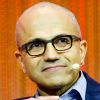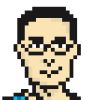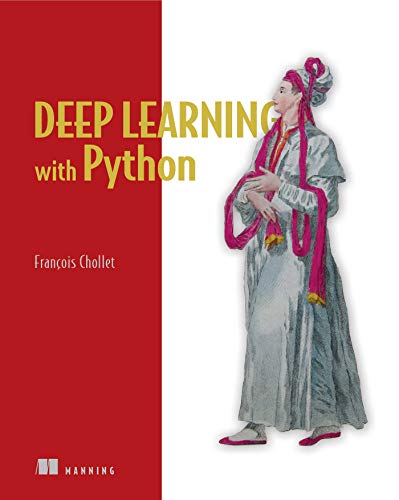16 Computer Science Books That Experts Trust and Use
Recommended by Satya Nadella, Kirk Borne, and John Maeda for Computer Science mastery and innovation
Create a Computer Science course with AI
Generate a personalized AI-powered course, tailored to your goals and topics of interest
What if I told you the key to unlocking the vast world of Computer Science lies within a few carefully chosen books? In a field that shapes everything from artificial intelligence to software engineering, the right books can accelerate your learning beyond what typical tutorials offer. Today, Computer Science is not just about coding — it's about understanding complex systems, algorithms, and innovative technologies that drive our digital future.
Leading voices like Satya Nadella, CEO of Microsoft, Kirk Borne, Principal Data Scientist at Booz Allen, and John Maeda, Global Head of Design at Automattic, have pointed to specific titles that profoundly influenced their mastery of the discipline. For example, Nadella highlights Deep Learning for its thorough approach to AI, while Borne praises Hands-On Machine Learning for practical implementation guidance.
While these expert-curated books provide proven frameworks and deep knowledge, you might want more tailored content based on your current skills, goals, or industry focus. In that case, consider creating a personalized Computer Science book that builds on these insights but hones in on what matters most to you.
Recommended by Kirk Borne
Principal Data Scientist, Booz Allen
“#Jupyter Notebooks — Fundamentals of #MachineLearning and #DeepLearning: ——————— #abdsc #BigData #DataScience #Coding #Python #DataScientists #AI #DataMining #TensorFlow #Keras ——— + See this *BRILLIANT* book: by @aureliengeron” (from X)
Aurélien Géron, drawing on his extensive experience as a Machine Learning consultant and former YouTube video classification lead, offers a highly practical guide to machine learning using Python frameworks. You explore a progression from simple linear regression models to sophisticated deep neural networks, with hands-on examples using Scikit-Learn, Keras, and TensorFlow. The book breaks down complex algorithms into digestible parts, such as support vector machines, clustering techniques, and generative adversarial networks, making these accessible even if you're new to machine learning. Whether you're a programmer eager to implement intelligent systems or a data scientist looking to deepen your toolkit, this book provides concrete projects and exercises that sharpen your skills without overwhelming theory.
After years of teaching Python to high school students in Alaska, Eric Matthes crafted this book to make programming accessible and hands-on. You’ll move from fundamental concepts like variables and loops to building interactive games and web applications using Python’s latest libraries. Chapters on testing with pytest and deploying Django apps show you how to write reliable, real-world code. If you want a practical introduction that balances foundational knowledge with creative projects, this book gives you the tools to start coding confidently and enjoyably.
This personalized book on computer science mastery offers a tailored journey through foundational and advanced topics, carefully matched to your background and learning goals. It explores core concepts such as algorithms, data structures, programming paradigms, and systems design while delving into specialized areas that align with your interests. The content reveals complex ideas in an accessible way, allowing you to build deep understanding without wading through unrelated material. By focusing on your specific goals, this tailored guide helps bridge expert knowledge and your unique learning path, producing a coherent synthesis of the vast field of computer science. It invites you to engage directly with the most relevant ideas, enhancing both comprehension and practical application.
The breakthrough moment came when Donald Knuth, a pioneer in algorithm analysis and programming techniques, created this multivolume series that blends rigorous theory with practical programming challenges. You’ll explore fundamental algorithms, seminumerical methods, sorting, searching, and combinatorial algorithms with a precision and clarity rare in technical writing. For example, Volume 4B delves into combinatorial search spaces and introduces dancing links, a technique that elegantly manages matrix manipulations. This set is ideal if you’re committed to deepening your understanding of algorithm design and computational problem-solving at a scholarly level. However, if you seek a light or introductory read, this series may feel dense and demanding.
What happens when decades of algorithmic mastery meet the intricate world of combinatorial problems? Donald Knuth, a towering figure in computer science, extends his seminal series with Volume 4B, delving into backtrack programming and SAT solvers. You’ll explore elegant data structures like Dancing Links and understand how they simplify complex search spaces, with practical applications ranging from sudoku puzzles to circuit design. The book’s mix of rigorous theory, playful puzzles, and detailed exercises makes it ideal for those ready to deepen their grasp of classical algorithms and their modern relevance. If your work or study involves algorithm optimization or combinatorial logic, this volume offers precise tools and insights worth mastering.
Recommended by John Maeda
Global Head of Design at Automattic
“@jesseddy The best book in classical and “hands-on example” terms is Structure and Interpretation of Computer Programs — but it requires maybe a year to get thru and for me, 10 years more to marinate over. *A* book is the one I am finishing now to come out Nov 2019.” (from X)
Drawing from decades of teaching experience at MIT and extensive research in programming languages, the authors have crafted a foundational text that reinterprets classical computing concepts through the lens of JavaScript. You’ll explore core programming paradigms, including recursion, interpreters, and compilers, gaining mental models that apply across languages. The book delves into nuanced subjects like language parsing and stack discipline, illustrated with JavaScript examples compliant with ECMAScript 2020. If you’re aiming to deepen your understanding beyond syntax to the architecture of computation itself, this book offers a rigorous, thoughtful path, though it demands patience and commitment.
This personalized book explores focused programming projects and exercises designed to boost your coding proficiency rapidly. It examines essential concepts and practical techniques tailored to your background and goals, ensuring you engage with material most relevant to your interests. The content reveals a pathway through progressively challenging tasks, matching your current skills and desired growth areas. Through this tailored approach, you can deepen your understanding and sharpen your programming abilities efficiently. By concentrating on hands-on practice, the book creates a customized learning journey that bridges expert knowledge with your unique pace and objectives. This focused exploration nurtures both confidence and competence in coding.
Recommended by Hilary Mason
Data scientist and founder
“The best part of programming is the triumph of seeing the machine do something useful. Automate the Boring Stuff with Python frames all of programming as these small triumphs; it makes the boring fun.” (from Amazon)
What happens when a software developer dedicated to teaching beginners tackles automation? Al Sweigart created this guide to help you write Python programs that handle tedious tasks like renaming files, filling spreadsheets, or scraping web data. You’ll learn Python basics and practical skills like input validation, Gmail automation, and working with PDFs, all built around making your daily computer work easier. This book suits anyone new to coding who wants to stop wasting hours on repetitive tasks and start making their computer do the heavy lifting for them.
Recommended by David Heinemeier Hansson
Creator of Ruby on Rails, Founder & CTO of Basecamp
Martin Fowler's decades of experience as Chief Scientist at ThoughtWorks inspired this book that reshaped how developers approach existing code. You gain a clear understanding of identifying "code smells" and practical refactoring techniques that improve code readability and maintainability without altering functionality. The book includes updated refactorings with JavaScript and functional programming examples, making it relevant beyond traditional object-oriented paradigms. If you're aiming to write cleaner, more adaptable software and want to deepen your grasp of software design principles, this book guides you methodically through the process.
Recommended by The New York Times
“Kaku spends much of [Quantum Supremacy] recounting the history of computing, bringing listeners back to the Turing machine and the invention of transistors as crucial foundations. That mind-blowing future is the focus. . . . [Kaku's] lucid prose and thought process make abundant sense of this technological turning point.” (from Amazon)
Michio Kaku, a physics professor at the City University of New York and cofounder of string field theory, brings his deep expertise to unravel the complexities of quantum computing in this book. You learn how quantum computers operate at an atomic level and why this shift from silicon chips signals a new era in computing power. The book explores practical implications, such as advancements in medicine, energy, and environmental science, with clear explanations and helpful metaphors that make difficult concepts accessible. If you want to understand the scientific and technological forces shaping the future, this book offers a thorough and engaging perspective without oversimplifying the challenges.
Recommended by Brad Traversy
Full stack web developer and online educator
“@EddyVinckk @adamudev @DThompsonDev @florinpop1705 @umaryusufkd @JSJabber I agree. Eloquent JS is a great book, but not the best for beginners” (from X)
What if everything you knew about learning JavaScript was challenged by Marijn Haverbeke’s approach? This book dives deep into the language’s core, focusing on writing clear, effective code through practical projects like a robot simulation and a pixel art editor. You'll learn fundamental programming concepts, from control structures and functions to asynchronous programming and browser scripting, all grounded in modern JavaScript features like arrow functions and async/await. If you're ready to move beyond surface-level tutorials and truly understand how JavaScript powers web applications, this book will sharpen your skills and broaden your perspective. It’s a solid fit for those comfortable with basic coding looking to build real-world programming fluency.
After nearly two decades working with SQL at major organizations like Target and NYC Transit Authority, Walter Shields developed this book to demystify database management for newcomers. You’ll get clear explanations of how databases function, along with practical guidance on writing key SQL queries to retrieve and analyze data effectively. The book includes helpful visuals and examples that make abstract concepts tangible, such as navigating relational databases and crafting queries to answer real business questions. Whether you’re a developer expanding your skills or a manager seeking to understand data-driven decision-making, this guide lays out the essentials without jargon or unnecessary complexity.
Jonathan E. Steinhart’s extensive experience designing graphics hardware and software shines through in this detailed exploration of what happens beneath the surface when code runs on a machine. You’ll gain a clear understanding of computer hardware fundamentals like logic gates and memory, and see why aligning your programs with hardware architecture can boost performance and security. Chapters on converting software into machine language and efficiency techniques such as loop invariance provide concrete skills for writing better code. This book suits programmers eager to deepen their technical insight and avoid common pitfalls that lead to bugs or vulnerabilities.
What started as Cory Althoff's personal struggle to bridge the gap between learning to code and working professionally became this guide for aspiring programmers. You’ll begin with Python fundamentals and advance through object-oriented programming, version control, and essential tools like Git and Bash. The book also tackles core Computer Science concepts such as data structures and algorithms, culminating in practical advice for coding best practices and job preparation. This approach benefits anyone serious about moving beyond hobbyist coding to a sustainable software engineering career.
Recommended by Satya Nadella
CEO of Microsoft
When Ian Goodfellow, Yoshua Bengio, and Aaron Courville combined their deep expertise in machine learning and academia, they crafted a resource that goes beyond introductory texts. You get a rigorous yet accessible exploration of deep learning's mathematical foundations—covering linear algebra, probability, and numerical computation—along with practical techniques like convolutional networks and sequence modeling. The book also surveys diverse applications from natural language processing to bioinformatics, making it ideal if you're aiming to build both theoretical understanding and applied skills in this fast-evolving field. Chapters on structured probabilistic models and generative models give you insight into cutting-edge research themes, though this is best suited for those with some prior grounding in computer science or statistics.
When François Chollet first realized how deep learning could reshape software development, he set out to demystify this complex field using Python and Keras, the library he created. This book guides you through the fundamentals of neural networks and machine learning, then advances to practical implementations in computer vision and natural language processing. You’ll gain hands-on experience with image classification models, sequence processing, and generative techniques like neural style transfer. If you’re comfortable with Python but new to machine learning frameworks, this book offers a clear path to mastering deep learning concepts and applying them to real projects.
Recommended by Jim Larus
Microsoft Research expert on compilers
“Keith Cooper and Linda Torczon are leading compilers researchers who have also built several state-of-the-art compilers. This book adeptly spans both worlds, by explaining both time-tested techniques and new algorithms, and by providing practical advice on engineering and constructing a compiler. Engineering a Compiler is a rich survey and exposition of the important techniques necessary to build a modern compiler.” (from Amazon)
Keith Cooper, a Doerr Professor at Rice University, and Linda Torczon, a senior research scientist, bring firsthand expertise from their work on the Massively Scalar Compiler Project to this detailed guide on compiler construction. You’ll gain a solid grasp of key techniques like static single assignment form, instruction scheduling, and graph-coloring register allocation, all essential for building modern compilers. The book balances foundational concepts with practical insights drawn from the authors’ extensive research and development experience, making it suitable for those aiming to deepen their technical understanding. If you’re involved in compiler design or want to master advanced code optimization and generation techniques, this book offers clear explanations backed by examples from multiple programming languages.
Drawing from decades of software engineering expertise, Robert C. Martin offers a deep dive into what it means to write code that’s not just functional but clean and maintainable. In this book, you’ll learn how to recognize the subtle differences between good and bad code, master naming conventions, structure functions and classes effectively, and implement robust error handling without cluttering your logic. The book’s case studies challenge you to transform messy codebases into elegant solutions, reinforcing the craft of programming beyond mere syntax. If you’re committed to improving your software craftsmanship, this book provides concrete methods to elevate your coding discipline.
Conclusion
These 16 books collectively cover the theoretical roots, practical programming, and emerging frontiers of Computer Science. Whether you're wrestling with algorithms, diving into machine learning, or refining your coding craftsmanship, there’s guidance here for every ambition.
If you're starting out, Python Crash Course and Automate the Boring Stuff with Python offer accessible, project-driven introductions. For those seeking to deepen algorithmic rigor, The Art of Computer Programming boxed set is unmatched. Meanwhile, professionals aiming for cleaner, maintainable code should turn to Clean Code and Refactoring.
For a more personal learning path, you can create a personalized Computer Science book that tailors these foundational concepts to your unique context. These books can help you accelerate your learning journey and build real expertise efficiently.
Frequently Asked Questions
I'm overwhelmed by choice – which book should I start with?
If you're new to programming, Python Crash Course or Automate the Boring Stuff with Python are excellent starting points. They balance theory and hands-on projects to build confidence quickly.
Are these books too advanced for someone new to Computer Science?
While some, like The Art of Computer Programming, are deep and demanding, others like The Self-Taught Programmer and Eloquent JavaScript can guide beginners through core concepts.
What's the best order to read these books?
Begin with practical introductions such as Python Crash Course, then progress to foundational theory with Structure and Interpretation of Computer Programs and Art of Computer Programming.
Should I start with the newest book or a classic?
Classics like Knuth's Art of Computer Programming remain relevant for understanding fundamentals, while newer books like Hands-On Machine Learning cover cutting-edge applications.
Can I skip around or do I need to read them cover to cover?
You can tailor your reading based on needs. Some books, like Clean Code, are great for specific topics, while others like Deep Learning are best read thoroughly.
How can I apply these expert books to my personal learning goals?
These expert books offer solid foundations, but creating a personalized Computer Science book helps bridge general principles with your unique background and goals for focused learning.
Help fellow book lovers discover great books, share this curated list with others!
Related Articles You May Like
Explore more curated book recommendations






















